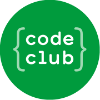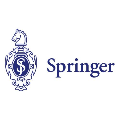Low-capacity scenarios have become increasingly important in the technology of the Internet of Things (IoT) and the next generation of wireless networks. Such scenarios require efficient and reliable transmission over channels with an extremely small capacity. Within these constraints, the state-of-the-art coding techniques may not be directly applicable. Moreover, the prior work on the finite-length analysis of optimal channel coding provides inaccurate predictions of the limits in the low-capacity regime. In this paper, we study channel coding at low capacity from two perspectives: fundamental limits at finite length and code constructions. We first specify what a low-capacity regime means. We then characterize finite-length fundamental limits of channel coding in the low-capacity regime for various types of channels, including binary erasure channels (BECs), binary symmetric channels (BSCs), and additive white Gaussian noise (AWGN) channels. From the code construction perspective, we characterize the optimal number of repetitions for transmission over binary memoryless symmetric (BMS) channels, in terms of the code blocklength and the underlying channel capacity, such that the capacity loss due to the repetition is negligible. Furthermore, it is shown that capacity-achieving polar codes naturally adopt the aforementioned optimal number of repetitions.
翻译:低能力设想方案在物联网技术和下一代无线网络技术中变得越来越重要,这种设想方案要求以极小的容量在频道上高效可靠地传输,在这些制约因素中,可能无法直接适用最先进的编码技术;此外,对最佳频道编码进行限量分析的先前工作对低能力系统的限度作出了不准确的预测。在本文件中,我们从两个角度研究低能力编码:限制长度和代码构造的基本限制。我们首先说明低能力制度意味着什么。然后我们确定各种频道低能力系统中频道编码的有限基本限制,包括二元加速频道(BECs)、二元对称频道(BSCs)和添加白高频频道(AWGN),从代码构建角度讲,我们从代码屏障长度和基础频道能力的角度来分析低能力传输的最佳重复次数。我们然后确定低能力制度意味着低能力制度意味着什么。然后确定低能力系统中频道编码系统在低能力系统中的有限基本编码限制,包括二元破锁频道(BECs)、二元配对齐频道(BSCs)和加码(BSCs)系统(BMS),因此,最佳能力损失为正常的重复能力显示,而最优的代码是极值是极值。




